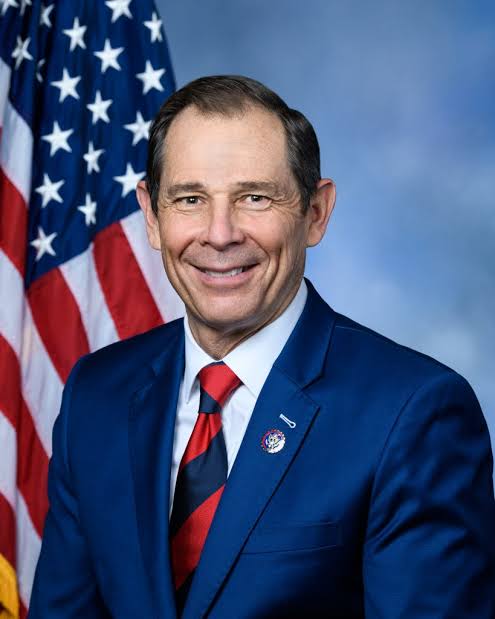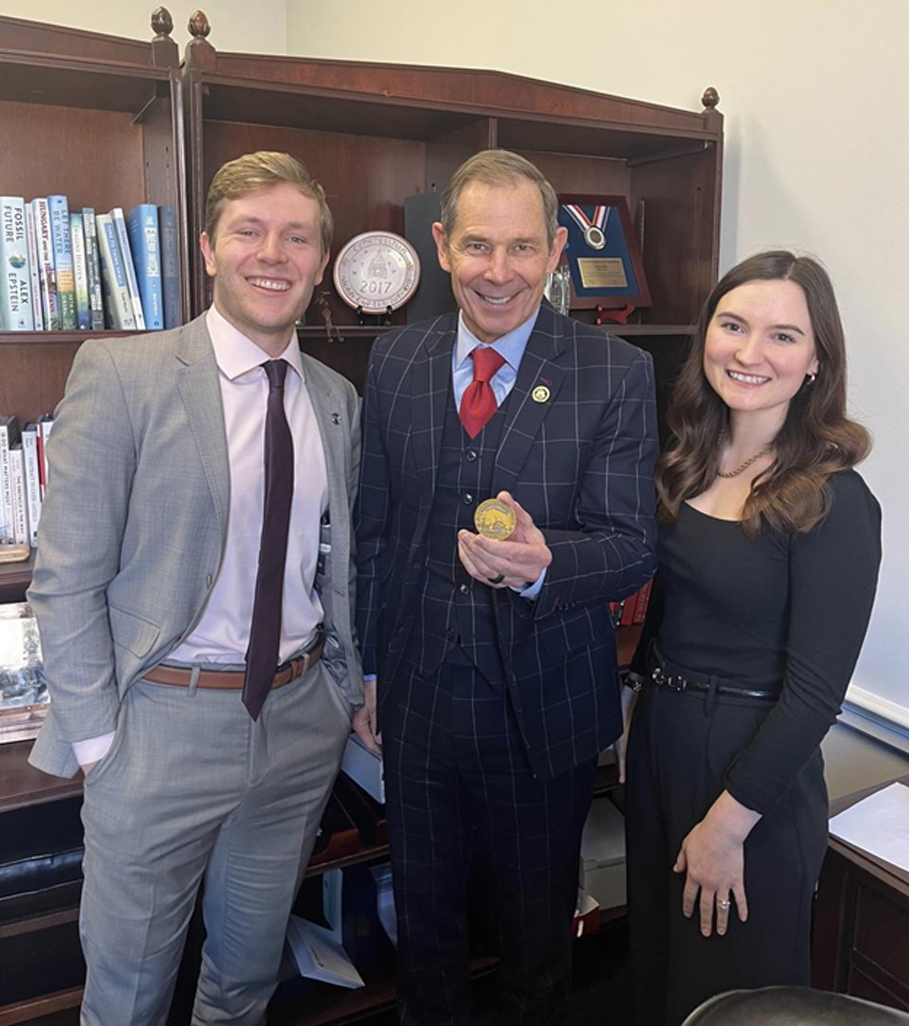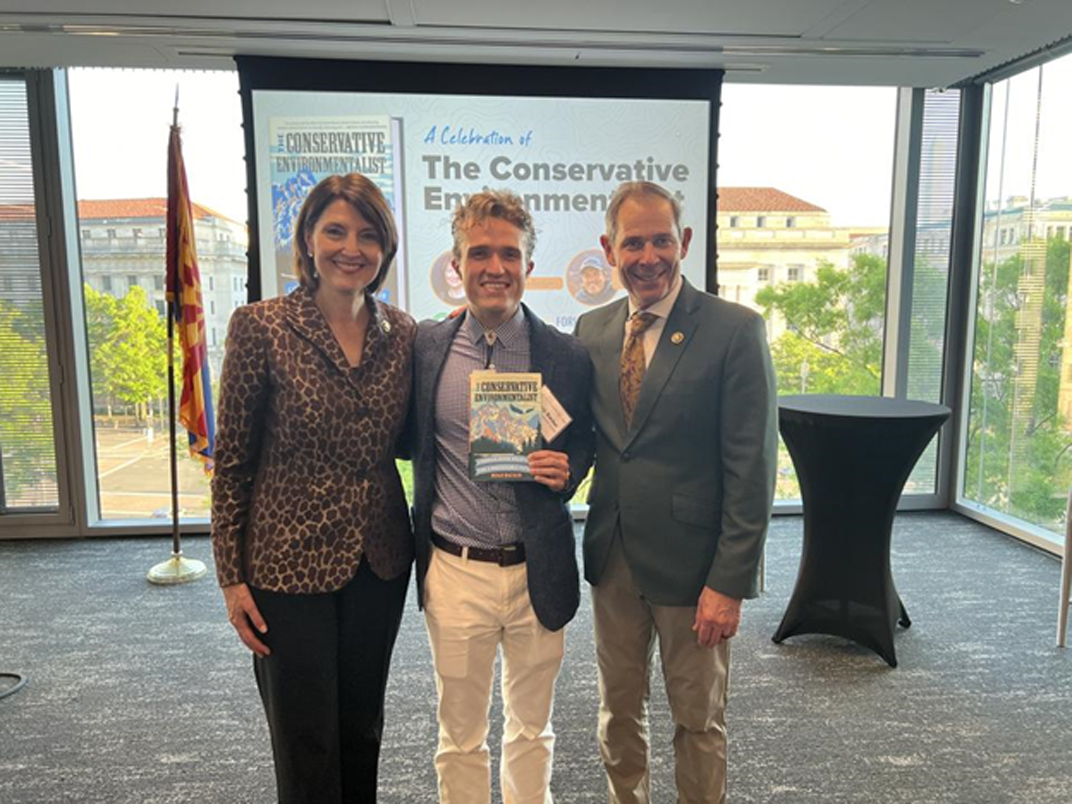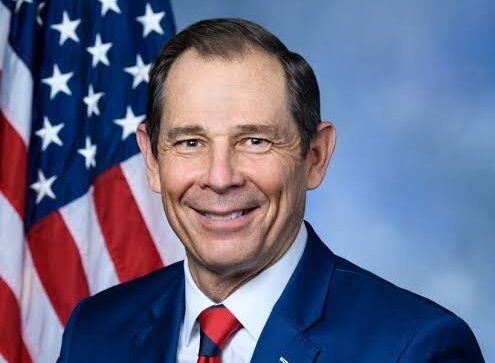On June 25, 2024, Rep. John Curtis won a very convincing victory (51.49%) in the Utah primary race for retiring Senator Mitt Romney’s seat. There were three other candidates in the race—Trump-endorsed Trent Staggs (30.74%), Brad R. Wilson (11.80%), and Jason Walton (5.97%). Mr. Curtis is running against Democrat Caroline Gleich, a mountaineer and environmental activist. Given that red state Utah has not elected a Democrat to the U.S. Senate in over half a century (the last one was Frank Moss in 1970), Curtis will be Utah’s new junior Senator.

US Republican Representative for Utah, Rep. John Curtis (R-UT)
I can’t tell you how pleased I am about that. I say that as a registered Democrat living in the very blue state of Massachusetts (we have a ratio of 3.7 of registered Democrats to registered Republicans ). Which means I won’t have a vote in Utah’s general election. If I did live in Utah, I’d still be a Democrat although with that ratio about the same in reverse (3.8 Republican to Democrat). I admittedly know very little about Ms. Gleich, but I’m enthused that she is an environmental activist. And no doubt I’d agree with a lot more of her imaginary votes on a broad range of issues than I will with the real ones Mr. Curtis will be casting. The right-wing think tank The Heritage Foundation (a main propagator of vapid, ill-informed, and ideologically-based rants against ESG) gives Mr. Curtis a lifetime conservative rating score of 88% (vs. 74% for the average Republican). This is close to Rep. Jim Jordan’s score of 93%, a man who prides himself as being the most conservative member in Congress, who founded the Freedom Caucus, and is making a meaningless meal with his anti-ESG initiatives. Topping it off, Mr. Curtis has voted in line with Trump’s policies 94.4% of the time. So, you rightly ask, why all this enthusiasm for Mr. Curtis?
Two reasons. First, Mr. Curtis recognizes the reality of climate change. Given the existential nature of this issue, my calculus is a simple one. While I don’t agree with Mr. Curtis on most things, his leadership on climate means more to me than those differences. Mr. Curtis has made great progress in making climate change a legitimate and mainstream issue in the Republican Party. Something we desperately need in order to craft bipartisan stable and long-term policies for the government’s essential role in addressing climate change. A role which must support the private sector, not attempt to interfere with it—as both the left and right are trying to do in their own way.
What Mr. Curtis is doing takes a great deal of courage. For starters, according to the U.S. Energy Information Administration (EIA), in Utah 53% of its electricity generation comes from coal and 26% from natural gas. At the same time, the EIA notes that “Utah is among the states with the greatest solar resources. Wind, hydropower, and geothermal resources are also major contributors to the state’s electricity generation from renewables.” No doubt Mr. Curtis sees the economic opportunity for Utah and other red states in the U.S. energy transition.

Rep. John Curtis accepts Eco-Right Champion award at annual ACC Summit in Salt Lake City in June 2023 (Photo: GAGE SKIDMORE)
More challenging is that Mr. Curtis in a party whose Presidential candidate has famously declared climate change to be a “Chinese Hoax.” Easy rhetoric like this (one of oh so many from Mr. Trump) is one thing. Doing the hard work to address what 84% of Americans believe to be a real issue is quite another. For me, Mr. Curtis is the leading Republican politician in addressing climate change. In 2021 he started the Conservative Climate Caucus (CCC) and served as Chair with Rep. Mariannette Miller-Meeks (R-IA) as Vice Chair. It currently has 82 members and is the fourth largest Republican House caucus. I’m pleased to say—with admittedly a touch of irony—that it has 11 members from Texas and five from Florida, the two red states taking pride in spearheading the pointless and ultimately self-harm-inflicting anti-ESG campaign. (I’ll have more to say about this in a future piece.) He also sits on the newly relaunched Climate Solutions Caucus, a bipartisan group of members working to build constructive dialogue around climate change. Mr. Curtis has many other climate credentials, too numerous to name but were shared with me in a private document provided to me by Mr. Chris Barnard, President of the center-right American Conservation Coalition (ACC).

ACC CEO Danielle Butcher Franz and President Chris Barnard presenting Rep. Curtis with an ACC challenge coin (Photo: American Conservation Coalition)
I am a big fan of the work of the ACC, a grassroots organization that has mobilized 50,000 conservative Millennials and Gen Z in all 50 states (with a goal of 100,000 by 2026) to support efforts to address climate change with conservative principles, including the election of Republican politicians who are committed to doing so. (Another irony: Texas and Florida are their two leading states.) To learn more about the ACC see Part 1 and Part 2 of the interview I did with its CEO Danielle Butcher Franz.
When I was in D.C. a few months ago, I had coffee with Mr. Barnard. We had a wide ranging conservation in which he told me about how Mr. Curtis was inspired to establish the CCC after a hike in his district with him and Mr. Benji Backer one of the co-founders of the ACC. Here’s a video of Curtis talking about the CCC’s founding story. I know the ACC’s sister organization, ACC Action, was very helpful in mobilizing thousands of younger voters during the Utah Senate primary. Another person who played an important role in the formation of the CCC is Ms. Heather Reams, President of the center-right Citizens for Responsible Energy Solutions (CRES). I had lunch with her on that trip and am very impressed with the work they are doing as well. I am doing an interview with her so stay tuned for that!
I have become increasingly interested in the work being done by conservatives who climate change with the same sense of magnitude and urgency as my liberal colleagues do, Conservatives also have some very different ideas about how to address it. I have written about them and how they contrast with the mainstream liberal ones. Really short version is that liberals think the financial sector can and should lead the energy transition and conservatives don’t. I don’t either. I also think there’s been too much handwaving about how “climate risk is financial risk.” For liberals, the theory of change is a financial-sector based one. For conservatives it is a technology-based one.

ACC Founder Benji Backer and President Chris Barnard on the hike with Rep. Curtis on which the Conservative Climate Caucus idea was born (Photo: American Conservation Coalition)
I also find conservatives more pragmatic about issues such as permitting, the amount and period in which fossil fuels will be necessary, new technologies beyond renewables and batteries (e.g., carbon capture storage and utilization, hydrogen, geothermal, and small modular reactors), and the competitive threat of China to U.S. energy security and global geopolitical stability. While many of my liberal friends wax enthusiastically about “How much China is doing!,” I feel exactly the opposite. The Chinese government is providing substantial government subsidies for green technologies such as wind, solar, and electric vehicles. It also has a near monopoly on rare earth minerals processing, abetted by the lack of permitting in the U.S. and other countries). While it continues to build coal plants at a rapid clip, adding up to an additional 300 before its emissions peak. Let’s be honest. China sees the energy transition as an important means of achieving its goal of global dominance. Seems to me that countering this should be a natural rallying cry for Republicans.
Do I think climate-conscious conservatives have all the right answers? Of course not. I don’t think climate-conscious liberals do either. I do think we need the best ideas from across the political spectrum. This has only recently become possible because of decades of climate denialism by the vast majority of the GOP. That is changing and Mr. Curtis has played a major role in this. At the same time, we’re seeing the emergence of the “Eco-Right”, and it is finding its voice to engage with liberals. I know many of the organizations and in this Eco-Right and am on a mission to get to know every single one of them.
Which gets me to the second reason Democrat me would vote for Mr. Curtis for Senator if I were living in Utah. Conservatives need to grow their institutional capacity to match that of the liberals so that we can have an informed exchange of views where each side realizes it needs to listen to the other. For years, Republicans really didn’t want to talk about climate change. When forced to by Democrats who come to them with solutions to the problem, the knee jerk response was “We don’t want to do that.” To the question of “Okay, what do you want to do?” the answer was “We really have no idea because we really haven’t thought about it.” No wonder Democrats tuned them out. But they now have good reason to engage, and Mr. Curtis is a key person in making this a real and exciting possibility.

Rep. Curtis spoke at a D.C. reception for the release of Benji Backer’s book “The Conservative Environmentalist” with Chair Cathy McMorris Rodgers (Photo: American Conservation Coalition)
I recently had the privilege of meeting Mr. Curtis at a small dinner organized by my friend Mr. Alex Flint, founder of the center-right Alliance for Market Solutions. The dinner was a private one so all I can say is that I was very impressed by Mr. Curtis’s knowledge of the topic and moved by his story of the creation of the CCC and how he very purposefully made sure the word “climate” was in it. I then had a nice chat with him with and one other person for about 15 minutes after the dinner was over.
It’s a foregone conclusion that Mr. Curtis will join the Senate next year. I think this is great news for those concerned about climate change. I look forward to following the great work he’ll continue to do on an even bigger platform. I’m a “glass-is-half-full” kind of guy and I think this can happen whoever becomes our next President.
SUBSCRIBE TO OUR NEWSLETTER
Subscribe our newsletter to receive the latest news, articles and exclusive podcasts every week


